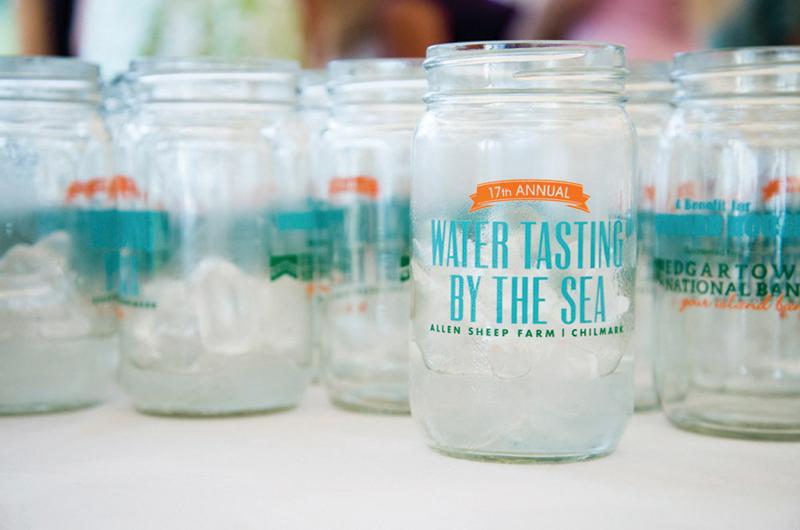It’s been twenty years since four Islanders – Clarence “Trip” Barnes, Charles Silberstein, Hazel Teagan, and Sandy Broyard – all hailing from different life experiences and backgrounds, saw the need to provide a residential transition for newly sober community members. And though Vineyard House is no longer a single donated antique house in Oak Bluffs that first welcomed men in 1997, the original big idea hasn’t changed even as its wingspan has spread to serve both men and women at a new campus in Vineyard Haven. There, in a collection of shingled buildings serving as separate men’s and women’s residences as well as a community gathering room and office space, as many as seven women and eighteen men from all walks seek a safe, supportive transition to a lasting sober life.
One who has made that transition himself is Austin Grande, who today is the open, optimistic – and sober – new assistant manager of the men’s house. The journey to a job and a life that sustains not just his rent but also his soul has been one of stops and starts, of determination followed by crash after crash. Rock bottom came in waves. It was not a singular event.
“I always tried to do really well,” he said, “but I always seemed to have to restart everything. I’d do really well and then I’d crash. I thought I was not a good person and I was full of shame and guilt and felt I could never live up to the potential everyone told me I had. I never really knew I had a disease.”
Grande is now twenty-nine, which is a long way from fourteen, the age he started smoking weed and drinking, unknowingly stepping on a treadmill that became increasingly self-destructive and desperate. The breaking point, or lucky break as he sees it now, came when a judge told him he could either go to jail or go to rehab.

“I had no intention of getting sober,” he recalled, “but I had to finish this six-month program. And I started to clear up.” Grande latched onto some men, many of whom had similar backstories, and “I kind of did what they told me to do. I saw a little light. I thought, ‘That’s my shot back to life and to my family.’”
Today, he has a new relationship with his father, who lives on the Island and first suggested Vineyard House. And having gone through the full eighteen months as a client, he couldn’t believe his good fortune when he got the call offering him the opportunity to come back and be part of the program.
“People come in here and their life is a mess and their families want nothing to do with them,” Grande said. “I’ve only been here two months, but I’ve already watched people come in and fall into the structure and blossom into these beautiful human beings who we all are once the disease is broken away. Like everyone, I learned to live a healthy life because someone learned it from someone else who taught me.”
“The Vineyard House is not a clinical facility,” said Brian Mackey, the current board chair. Many of the residents come to Vineyard House after a stay in a rehab or detox facility.
“It’s an environment with a group a people who want to do the same thing. It enables Islanders to come back and participate in Island life and go back to jobs and be with family, but have a place to live where there are rules and structure. And doing that for six months to a year or more has really made all the difference for people.”
While acknowledging the creeping and escalating problem of other drugs here, particularly opioids, Mackey still sees alcohol addiction as the main threat, impacting not just the individual, but their families and the larger community.
“I would like to say it’s different today, but it’s not,” he said. “There’s still an unlimited supply of residents. And while I would say drugs are clearly a visible problem, alcohol has not gone away and the problems keep coming back up generation after generation.”
Fortunately, for two decades now, the community that has supported Vineyard House has offered a path forward for some.That is why on July 20, when the organization holds its twentieth annual “Water Tasting by the Sea,” there will be much to celebrate. Because it’s the community, both within the walls of Vineyard House and beyond, that sustains Grande and other Islanders in his situation.
“The recovery community here is so big and it’s so loving,” said Grande. “When I first got here and I was worried about work and paying the rent, it wasn’t a problem. The community just swallowed me up and said everything was going to be okay. For someone like me, coming from nothing, it’s a comfortable feeling when you really need to be comforted.”
Grande is just one of the 475 men and women who, on the road to recovery, have turned to Vineyard House for stability, support, and a road forward. For twenty years a long list of volunteer board members and others from one end of the Island to the other have provided not just a roof and a bed, but refuge, jobs, and a way back to families, to community, to life itself.




